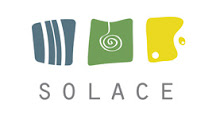ü The “parable of the sower” takes the place of the “sermon on the mount.” A focus on God’s goodness and kingdom invitation being thrown everywhere and seeing a dynamic process of life and death, just like in the fields around about you.
ü Action, emotion– dynamic, immediate, emotional, confronting and confusing. I imagine that this community expected discipleship to be all kinds of highs and lows. There is not a lot of teaching (apart from chap 4.) There are lots of radical acts that are lauded (the widow’s mite, the syro-phoenician woman, John the Baptist). The kingdom is massively different to everyday life and comes to life with big sacrificial acts.
ü Faith – the “answer” seems to be radical trust in Jesus –and ACTING upon this. (The bleeding woman, his own village and the failure of the disciples to cast a demon out of a boy, moving a mountain.)
ü Failure and misunderstanding is normative – the followers and “insiders” who choose to remain close to Jesus experience failure as a norm. The ending of the gospel (16:8) highlights that raw encounters with God often produce negative results, as do many other stories. We would want to say that this is not the end of the story but need to be circumspect in this since in this case it quite literally is!!!
ü Inclusion of all kinds of people, yet something about Israel. Jesus criss-crossed Galilee (the key to this is knowing Jews mainly live on one side and gentiles on the other.) YET felt the need, in dealing with the syro-phoenician woman – to put her in her place.
As we were reading on Sunday i thought of another distinctive. Jesus teaches only in Chapter 4 (what is the kingdom like) AND in chapter 13. This second lot of teaching is as big and is all about the life and times of believers/church after Jesus has gone. This "end times" teaching is passionate and extreme. Perhaps it makes for some hard core "hanging on" in tough times but perhaps also some sad weird end times beliefs in soft times.






